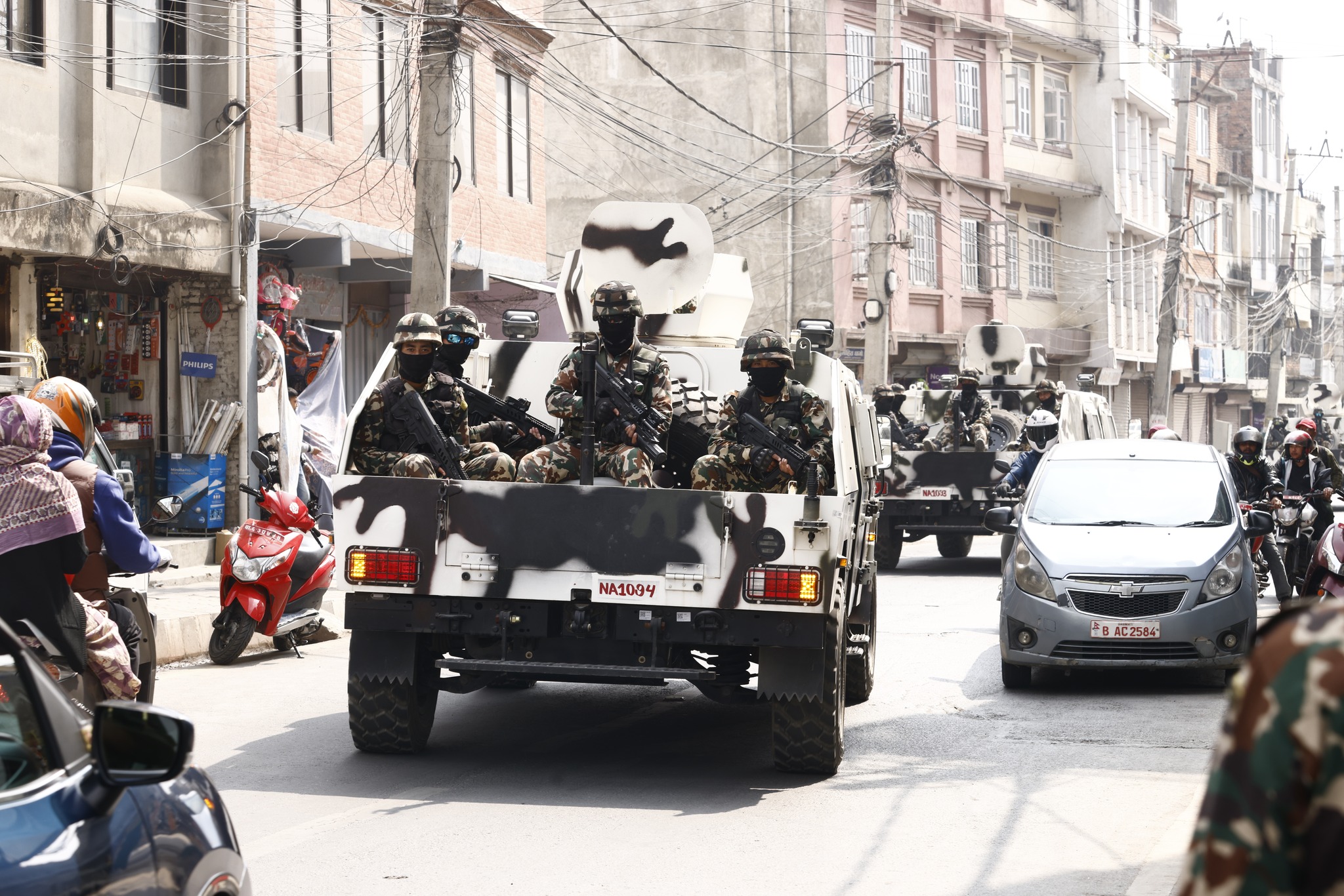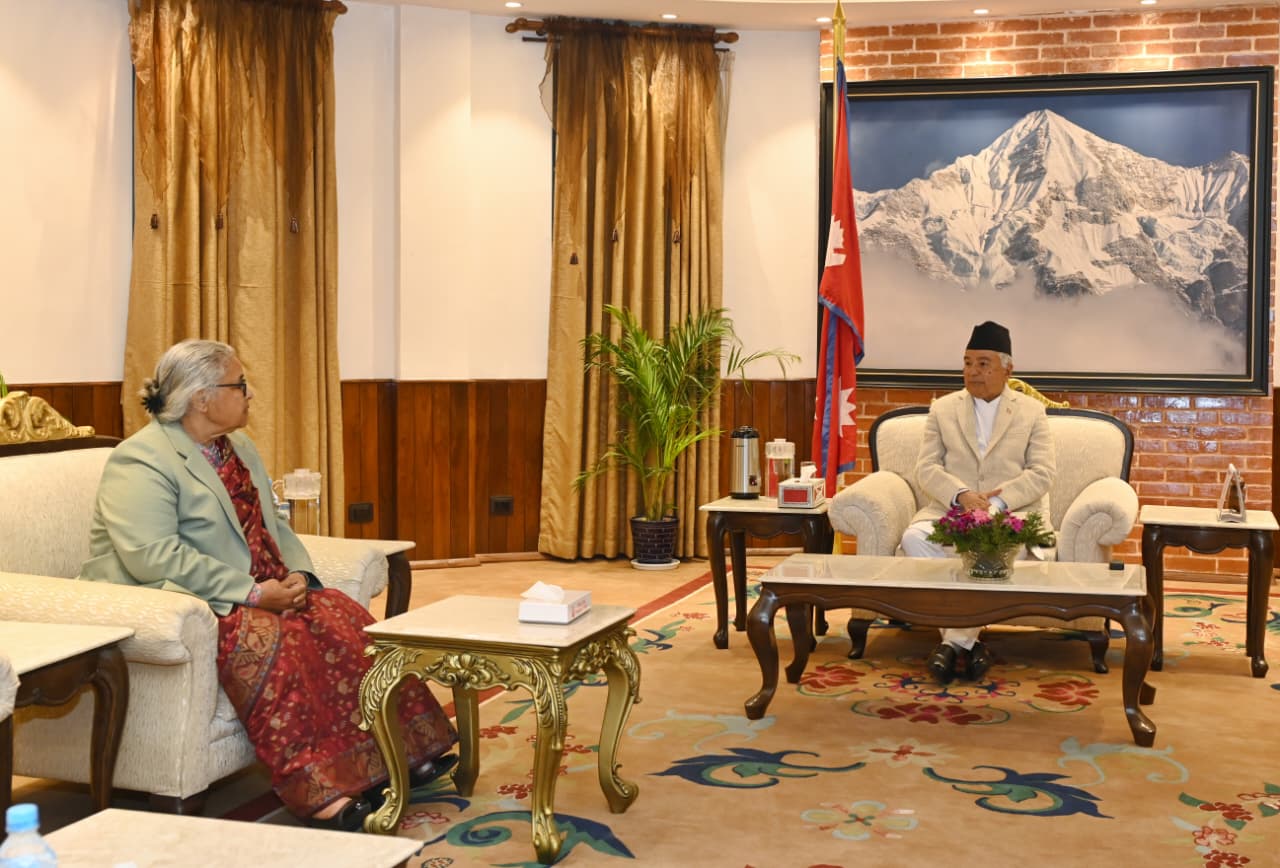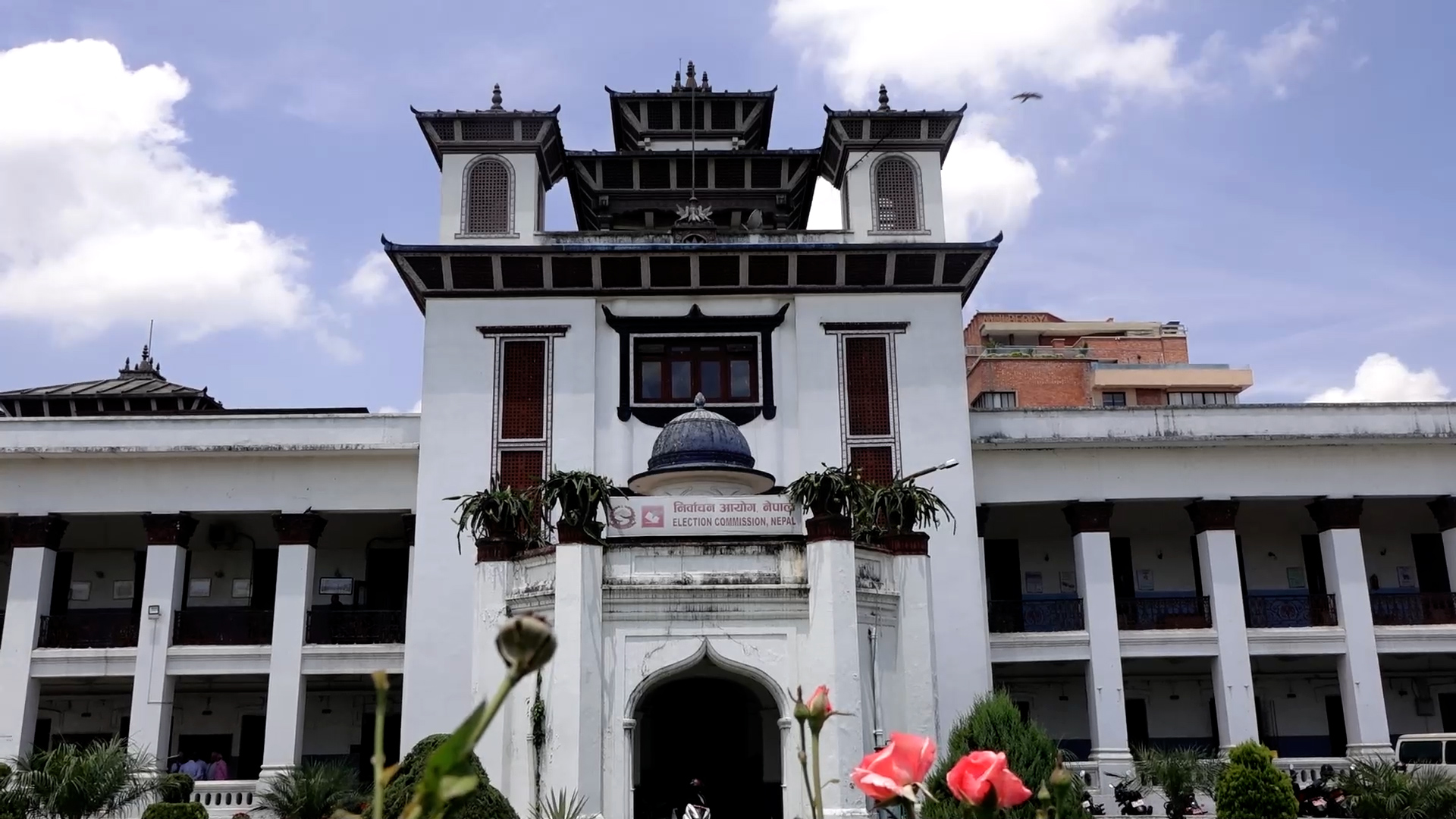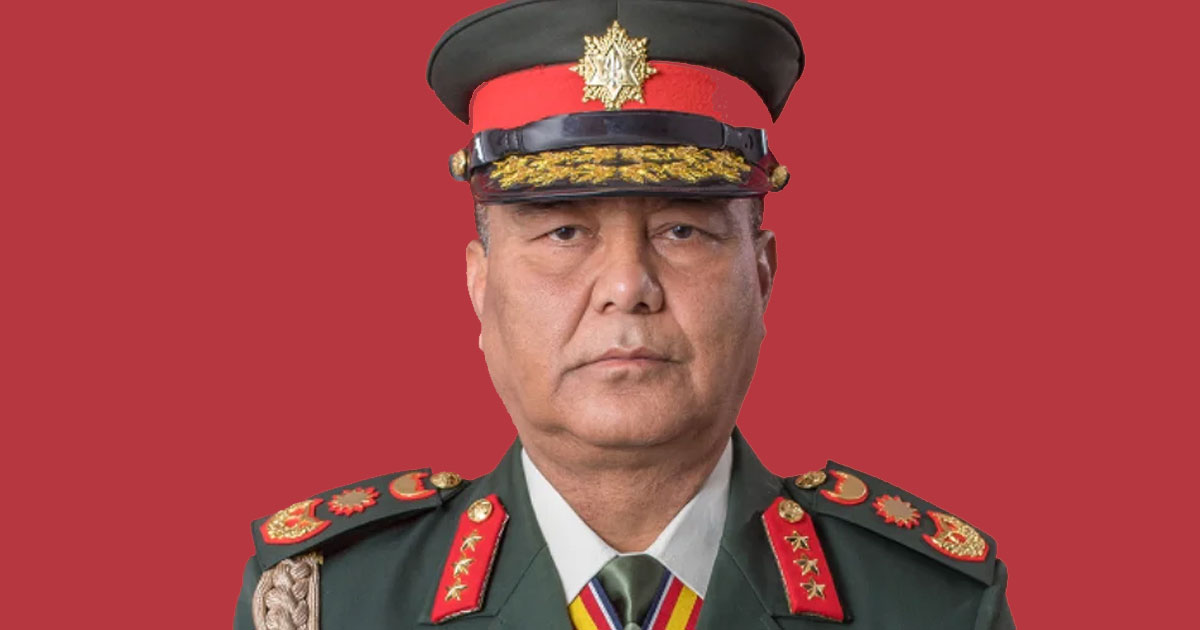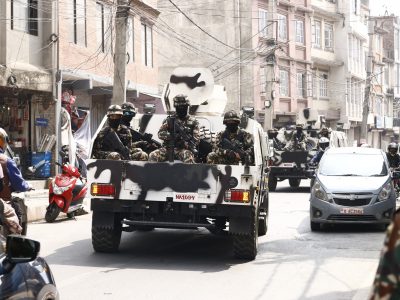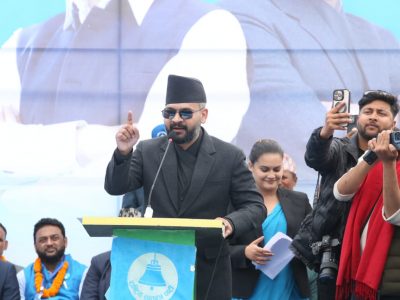Macron says he understands Muslim’s shock over cartoons of Prophet Muhammad, but claims it cannot justify violence
French satirical magazine, Charlie Hebdo also published a caricature of the Turkish President.
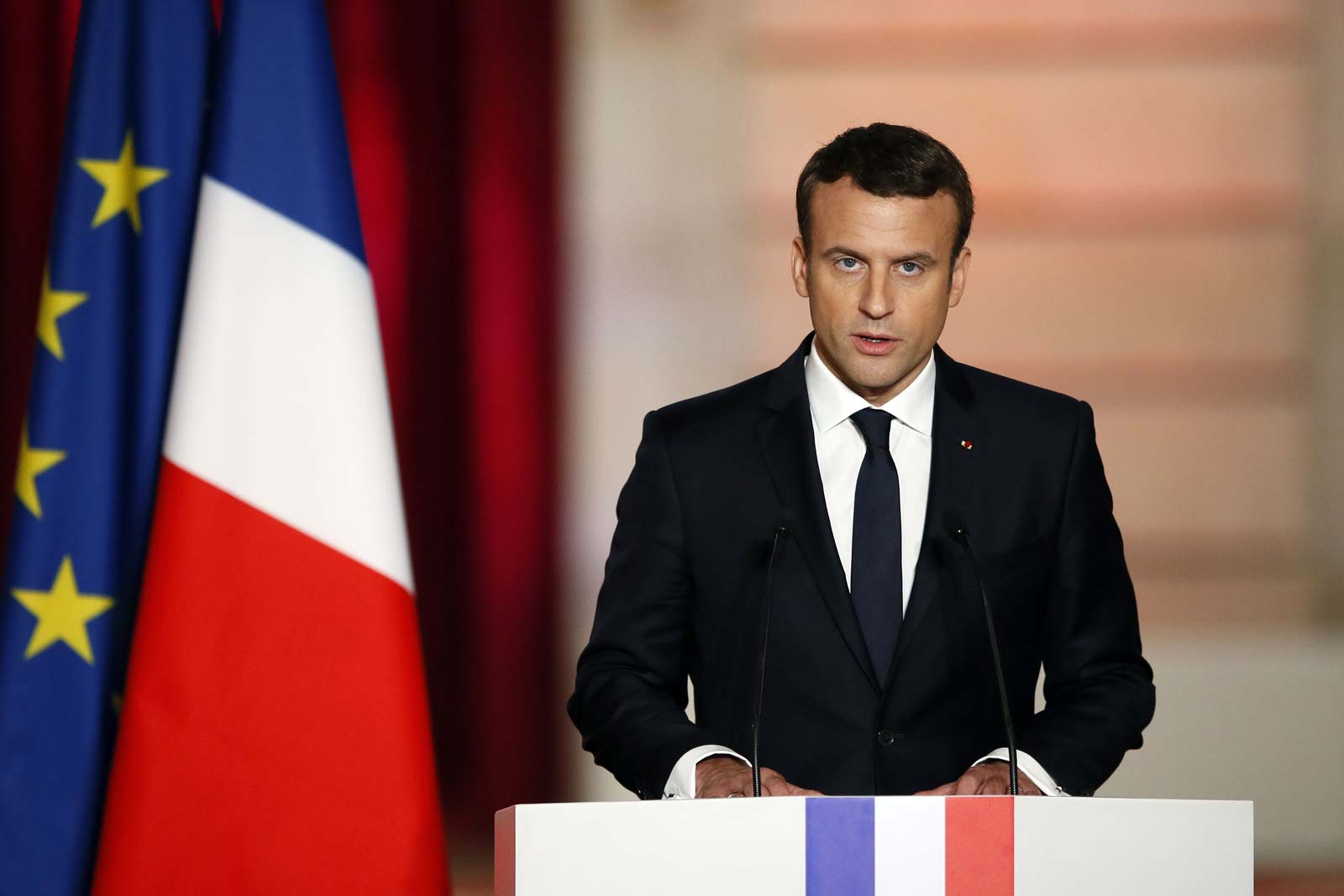
Kathmandu. Thousands of Muslims have been engaged in protests all over the world, as France’s Prime Minister, Emmanuel Macron’s statement that Islam is “in crisis” created a stir in much of the Muslim world. Macron has claimed that while he understands the sentiments of the Muslims regarding the caricatures of the Prophet Muhammad, he was simply seeking to defend France’s freedom of speech, and that it could not justify violence.
In an interview to Al Jazeera, he noted that “The caricatures are not a governmental project, but emerged from free and independent newspapers that are not affiliated with the government.” He further added, “I will always defend in my country the freedom to speak, to write, to think, to draw.”
He was referring to the various caricatures of the Prophet Muhammed, that had prompted several groups to rally from Turkey to Pakistan and Bangladesh, with most of the Arabic states joining in and issuing calls to boycott and ban French products. Charlie Hebdo, a satirical French magazine also printed a caricature of the Turkish President Recep Tayyip Erdoğan, after Erdoğan criticized the French President and said that Macron needed “mental checks” for his defense of the cartoons. The insult resulted in France calling back its ambassador from Ankara.
Macron recently mentioned that while his government was trying to calm the tensions between the Muslim states and France, Turkey “has a bellicose attitude towards its NATO allies.” The Foreign Minister of France, Jean-Yves Le Drian had assured that France would send back its representative, however, Ankara was making “the deliberate choice to instrumentalize” the beheading of the high school teacher, Samuel Paty.
The rising tensions prompted the head of the United Nations Alliance of Civilizations, Angel Moratinos, to express his concerns. Moratinos commented that the “inflammatory caricatures have also provoked acts of violence against innocent civilians who were attacked for their sheer religion, belief or ethnicity.”
The past few months have been witness to quite a few attacks in France that have revolved around the statements made by the French President, including the beheading of Samuel Paty by a Chechen rebel for the displaying caricatures of the Prophet, and the violent killings in Nice, outside of a Church. The incidents have only served to create a wave of discontent and rage in the nation. Gérald Moussa Darmanin, a French politician had noted that France needed to be prepared for similar attacks in the future since they were “at war against an ideology, Islamist ideology.”
Following the attacks, Macron stated that “France is under attack,” urging the nation to remain united and not succumb to the “spirit of division.”
France permits the rights to blasphemy, and Macron posited, “I understand the feelings that this arouses, I respect them. But I want you to understand the role that I have. My role is to calm things down, as I am doing here, but at the same time it is to protect these rights.”
He asserted, “I can understand that people could be shocked by the caricatures, but I will never accept that violence can be justified.”
France’s secular values, and the President’s ardent defense of it has put Macron at odds with the Muslim-majority states. With the heightened tensions and the attacks in France, Emmanuel Macron’s vow to combat Islamic extremism will serve to create further ripples between the overarching regional structure.
Facebook Comment
latest Video
Trending News
- This Week
- This Month


